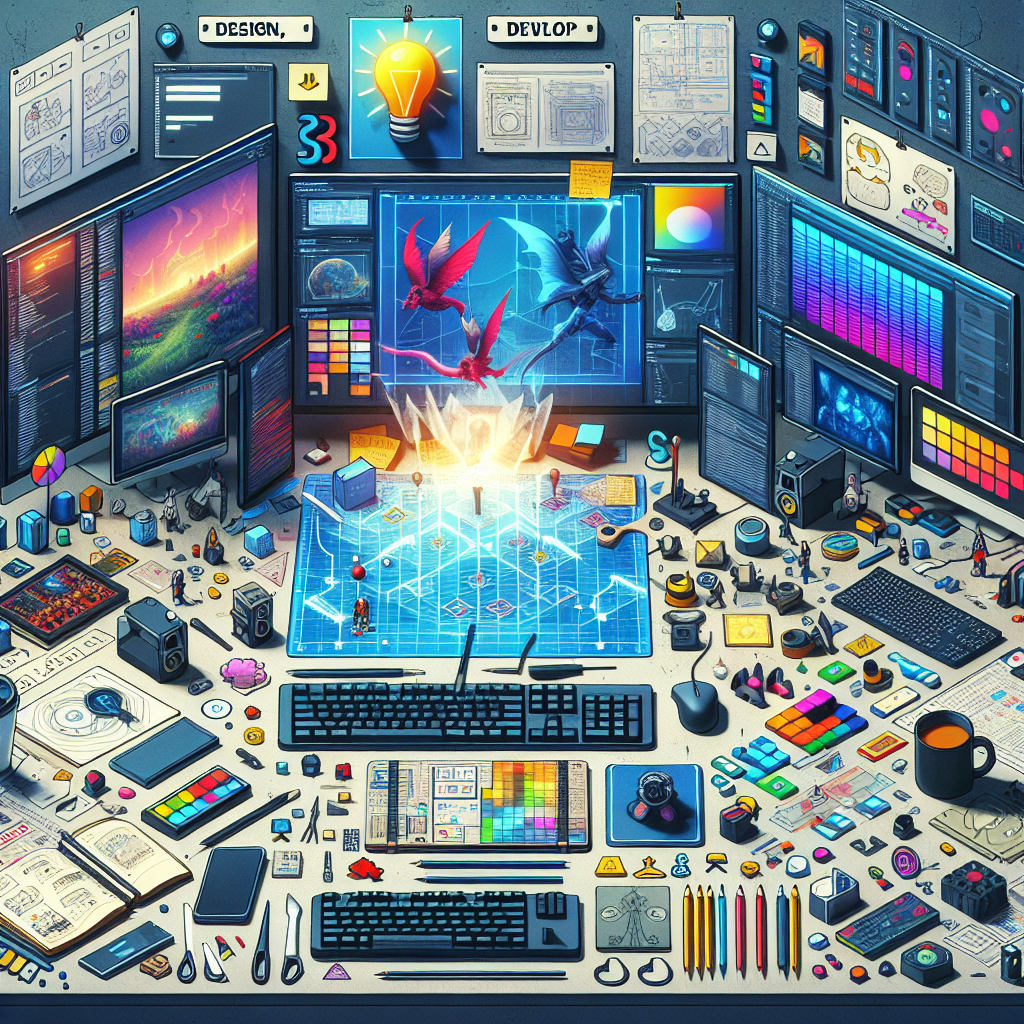Design, Develop, Dominate: Game Design Tools That Simplify the Process
The gaming industry has evolved tremendously over the years, transforming from a niche market into a global phenomenon. With advancements in technology, not only has gaming become more accessible, but the tools available for game design have also improved drastically. Whether you’re a seasoned developer or an aspiring game creator, leveraging the right tools can simplify the process of game design, enabling you to bring your ideas to life with greater efficiency. In this article, we will delve into some of the most powerful game design tools that help designers to design, develop, and dominate their craft.
1. Game Engines: The Backbone of Game Development
Game engines are the foundation upon which games are built. They provide the necessary framework and tools for artists, programmers, and designers to create immersive experiences. Some of the most popular game engines include:
-
Unity: Known for its versatility, Unity caters to both 2D and 3D game development. With a vast asset store, supportive community, and a user-friendly interface, Unity allows developers to prototype quickly and iterate on their designs efficiently.
-
Unreal Engine: Unreal Engine stands out with its stunning graphics and advanced rendering capabilities. Ideal for AAA titles, it offers a robust blueprint system that enables designers to create complex gameplay mechanics without extensive coding knowledge.
- Godot: An open-source engine that promotes a unique approach to game development, Godot is lightweight and user-friendly, making it perfect for indie developers. The engine supports both 2D and 3D game development and features a flexible scene system that simplifies the organization of game assets.
2. Graphics and Animation Tools: Bringing Visions to Life
Creating visually compelling game art is an integral part of game design. Fortunately, various tools can simplify this aspect of development:
-
Adobe Creative Suite: Applications like Photoshop and Illustrator are industry standards for 2D art creation. They allow artists to create stunning character designs, environments, and user interfaces with ease.
-
Blender: This open-source 3D modeling software is rapidly gaining popularity among game developers. Blender offers a comprehensive suite for modeling, animating, and texturing, all without the exorbitant price tag of many professional tools.
- Spine: For developers focused on 2D animation, Spine offers specialized tools for skeletal animations. Its intuitive interface makes it easy to bring characters to life, allowing for fluid animations and improved performance in games.
3. Sound Design Software: Enhancing the Immersive Experience
Sound is crucial in creating an immersive gaming environment. Tools that simplify sound design can significantly enhance the quality of the game:
-
Audacity: As a free, open-source audio editing tool, Audacity allows developers to record and manipulate sounds effortlessly. Whether it’s creating sound effects or editing voiceovers, this tool is essential for game audio.
-
FL Studio: For composers focusing on music for games, FL Studio is a powerful Digital Audio Workstation (DAW) that offers a variety of plugins and instruments suited for game soundtracks.
- Freesound: A collaborative database of Creative Commons licensed sound effects, Freesound allows developers to access a vast library of audio resources to enrich their games.
4. Project Management and Collaboration Tools: Streamlining Development
Game development often involves teamwork, and managing tasks efficiently is critical to success. Tools that enhance collaboration and project management can expedite the game design process:
-
Trello: Trello is a visual project management tool that allows teams to organize tasks using boards, lists, and cards. It’s simple to use and provides a transparent overview of the project’s progress.
-
Slack: Effective communication is paramount in any collaborative project, and Slack offers a platform for real-time communication among team members. With integration capabilities for various apps, teams can streamline their workflows.
- GitHub: For version control, GitHub is the go-to platform for developers. It allows teams to track changes in their code, collaborate efficiently, and maintain a history of updates, minimizing potential conflicts during development.
5. Prototyping Tools: Experimenting with Concepts
Prototyping is a crucial step in the game design process, allowing developers to test and refine their ideas before full-scale development. Tools that simplify prototyping include:
-
Construct 3: An intuitive drag-and-drop game builder, Construct 3 is an excellent platform for creating prototypes quickly. It allows designers to focus on gameplay mechanics without the need for coding knowledge.
-
GameSalad: Geared towards education and indie developers, GameSalad provides an easy-to-use interface for designing games and experimenting with concepts seamlessly.
- Playtesting Platforms: Tools like itch.io enable developers to share prototypes with a broader audience, gathering valuable feedback to improve gameplay before committing to a final version.
Conclusion
In the dynamic world of game design, the right tools can make all the difference. Whether you’re designing visuals, creating sounds, managing projects, or developing gameplay mechanics, a myriad of applications exist to streamline the processes involved in game development. By leveraging these tools effectively, developers can save time, reduce complexity, and ultimately bring their creative visions to life with greater impact. Embrace the innovations at your disposal, design with purpose, develop with efficiency, and dominate the gaming landscape!




